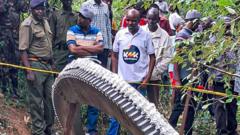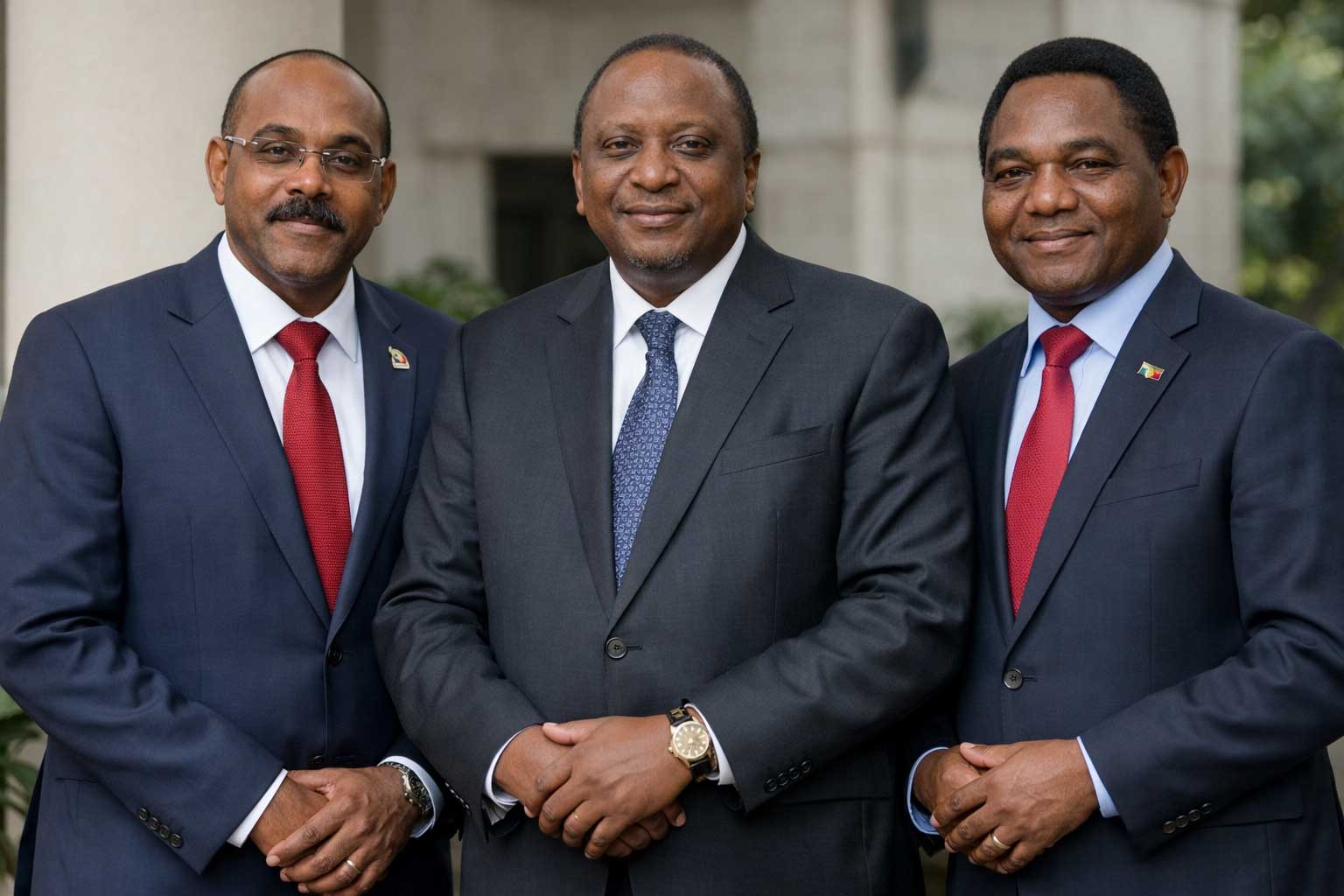An eerie afternoon in Mukuku, Kenya, turned chaotic when a loud boom startled villagers, leading them to believe they might be witnesses to a bomb or gunfire. Seventy-five-year-old farmer Stephen Mangoka recounted looking around in confusion until he learned that something had fallen from the sky. The object—a large, hot metallic ring—landed on farmland, sending the local community into a frenzy of curiosity.
Eyewitness Ann Kanuna, who owns the land where it fell, described the sight: the metallic piece glowed red from the heat, requiring nearly two hours to cool before anyone dared approach it. As the excitement built, crowds converged, snapping selfies beside the unusual find, which weighed over 500 kg (1,102 lbs) and measured about 2.5m (8ft) across.
Local authorities were quickly alerted, leading to the involvement of the Kenya Space Agency (KSA) the following day. Fearing theft, local villagers banded together with police to protect the site overnight, stoking interest in what many believed was a relic from space.
Following investigations, the KSA classified the object as a "separation ring" from a rocket launch, typically designed to burn up during re-entry into the Earth's atmosphere. Although no injuries occurred, some villagers reported structural damage to homes nearby, prompting calls for accountability and compensation.
Concerns about potential health effects arose when residents claimed exposure to the debris made them feel unwell; however, tests by the Kenya Nuclear Regulatory Authority indicated low radiation levels deemed safe for humans.
Though the responsibility for any damage lies with the state of the country from which the object originated, identifying the specific launch is challenging. Speculations suggest it may belong to an Ariane rocket last launched in 2008.
As space tourism and satellite launches increase globally, so does the likelihood of space debris incidents like this one. With over 6,000 tonnes of space junk currently in orbit, locals are left anxiously wondering what the future holds and demanding assurances from the government regarding their safety.



















